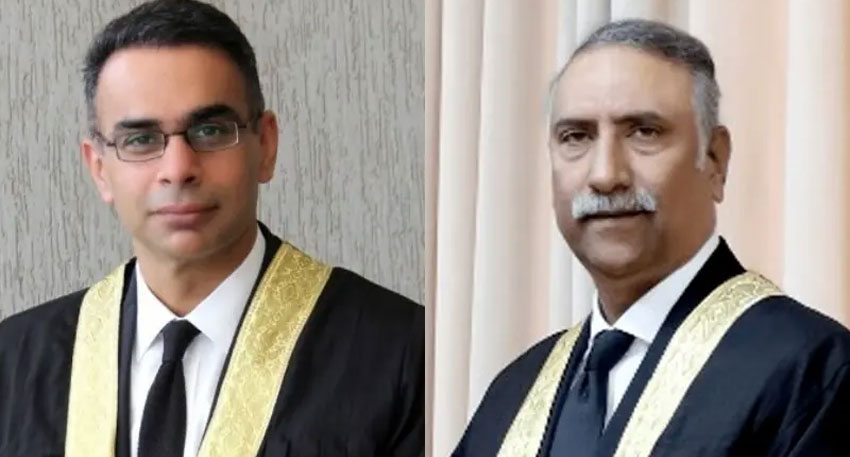
Justice Babar Sattar of the Islamabad High Court (IHC) has issued a strongly worded letter to Chief Justice Mohammad Sarfraz Dogar, accusing him of undermining judicial independence and transforming the high court into a centralised institution.
The letter, shared among fellow judges ahead of a full court meeting, levels serious allegations against the chief justice’s administrative conduct.
Justice Sattar criticised what he described as the erosion of the IHC’s fundamental role as a defender of constitutional rights, questioning whether the court was truly fulfilling its duty to protect citizens from abuse of power. He expressed concern over the growing perception that the court no longer served as a guardian of civil liberties, and that its credibility in the public eye had deteriorated.
Justice Sattar also condemned the lack of oversight over the district judiciary, raising alarm over the frequent rotation of judges through temporary postings, mostly on deputation. He argued that this has prevented the development of an independent and competent lower judiciary, which the high court is constitutionally bound to supervise.
He raised further objections over the manipulation of case rosters, alleging that important benches were formed while deliberately excluding senior judges, including the senior puisne judge. According to him, cases were disproportionately assigned to recently transferred or additional judges, sidelining permanent judges who had opposed the chief justice’s transfer to the IHC. He stressed that judicial administration should not be dictated by personal preferences, and warned against allowing any one individual to centralise authority.
In his letter, Justice Sattar cited specific incidents where judicial orders were ignored, cases transferred without legal justification, and dockets restructured to render some judges ineffective. He said such moves amounted to an unlawful concentration of power that severely damaged the collegial nature of the high court.
He criticised the formation of administrative committees which excluded the most senior judges, in violation of IHC rules and longstanding institutional practices. He noted that these committees were instead filled with additional judges and those transferred from other jurisdictions, including Lahore, from where the chief justice was appointed.
The judge expressed outrage over a circular issued by the chief justice requiring judges to obtain an NOC for travelling abroad, likening it to placing judges on an unofficial Exit Control List. He asserted that such authority was not supported by any provision of the Constitution or law, and warned against turning the office of the chief justice into a monocracy.
He further questioned the manipulation of judicial performance statistics, which he claimed were selectively compiled to present some judges as highly efficient while portraying others as underperforming. He demanded a transparent and objective performance evaluation framework, arguing that misleading data undermines public trust and institutional accountability.
Also Read: Hanif Abbasi slams defence minister, urges resignation over bureaucracy remarks
Justice Sattar warned that such unchecked centralisation of power would not only damage the IHC’s credibility but also set dangerous precedents. He emphasised that while institutions take decades to build, they can be dismantled quickly if authoritarian tendencies are left unchallenged. In closing, he urged the chief justice to treat the letter in good faith, stating that its purpose was to foster reform and preserve the dignity of the judiciary.
While acknowledging that some might view his effort as futile, he remained hopeful that honest introspection and institutional dialogue could reverse the ongoing decline. He apologised in advance for any offence caused, stressing that candid conversations among judges were necessary for institutional repair.




